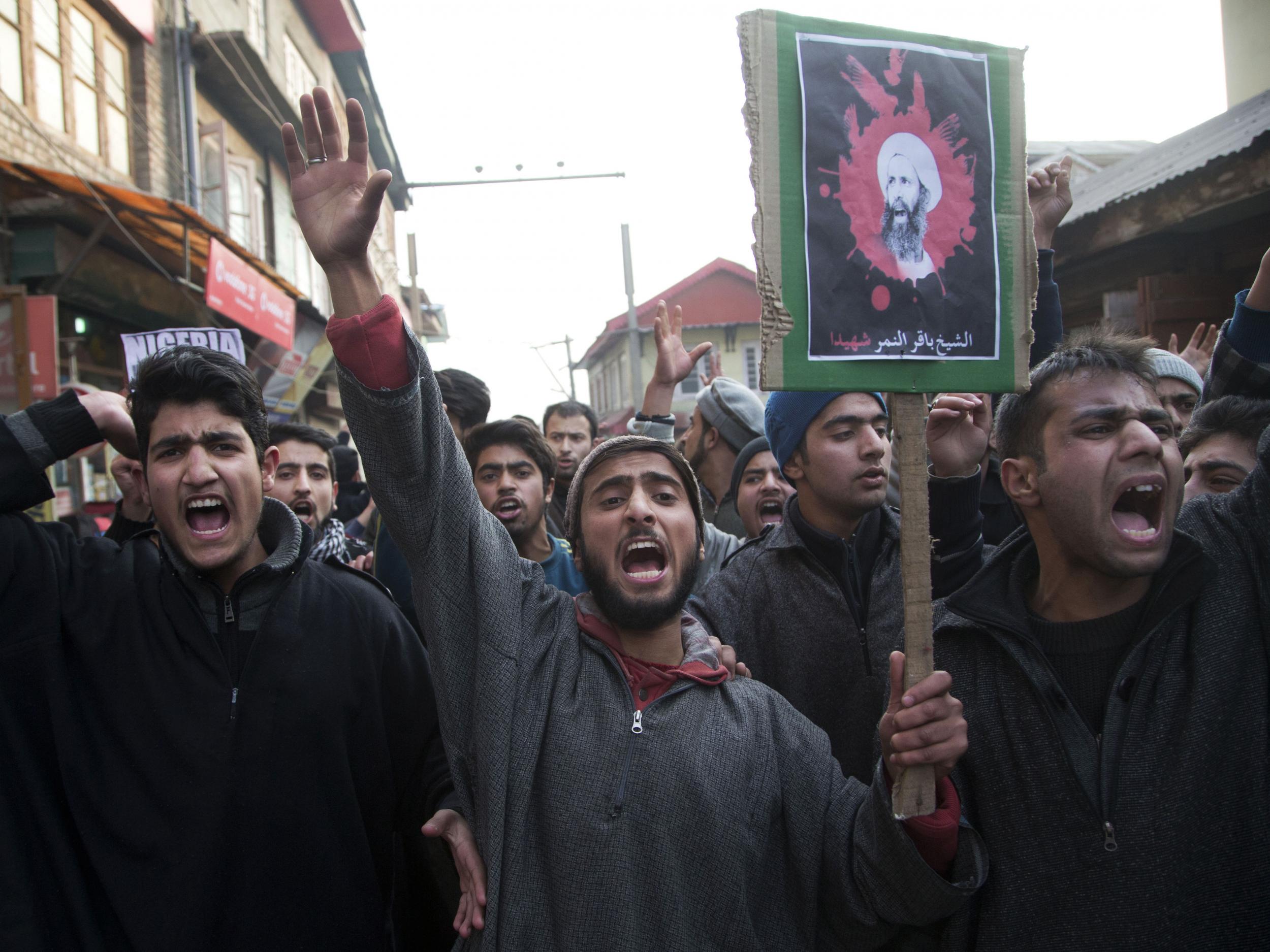Saudi Arabia puts dozens of Shia Muslims on trial accused of spying for Iran
Trial first in recent memory for Saudis accused of spying and may stoke tensions between local Shia and Sunni Muslims

Your support helps us to tell the story
From reproductive rights to climate change to Big Tech, The Independent is on the ground when the story is developing. Whether it's investigating the financials of Elon Musk's pro-Trump PAC or producing our latest documentary, 'The A Word', which shines a light on the American women fighting for reproductive rights, we know how important it is to parse out the facts from the messaging.
At such a critical moment in US history, we need reporters on the ground. Your donation allows us to keep sending journalists to speak to both sides of the story.
The Independent is trusted by Americans across the entire political spectrum. And unlike many other quality news outlets, we choose not to lock Americans out of our reporting and analysis with paywalls. We believe quality journalism should be available to everyone, paid for by those who can afford it.
Your support makes all the difference.Saudi Arabia has put 32 people on trial, including 30 members of its own Shia Muslim minority, accused of spying for Iran, several local newspapers and television reported on Monday.
The 32, including an Iranian and an Afghan, were detained in 2013 sparking expressions of concern among Saudi Shias who said that several were well known figures in their community and not involved in politics.
The trial is the first in recent memory for Saudis accused of spying and may stoke tensions between local Shia and Sunni Muslims and with Iran, which strongly denied the accusations at the time.
The bitter rivalry between the Sunni-ruled kingdom and Iran, a Shia theocracy, has aggravated wars and political struggles in Syria, Iraq, Lebanon, Yemen and Bahrain and is regarded by many analysts as a cause of regional instability.
Tensions escalated further in January when Riyadh broke off diplomatic ties following the storming of its Tehran embassy by protesters angered at Saudi Arabia's execution of a Shi'ite cleric convicted of involvement in the killing of policemen.
Riyadh's Bureau of Public Prosecution presented the charges against the 32 on Sunday at the Specialised Criminal Court, which tries security offences, the Saudi-owned al-Arabiya channel reported.
The charges included establishing a spy ring with members of Iranian intelligence and passing them sensitive military information, seeking to sabotage Saudi economic interests, undermining community cohesion and inciting sectarian strife.
They also included supporting protests in the Shi'ite-majority region of Qatif in Eastern Province, recruiting others for espionage, sending encrypted reports to Iranian intelligence via email and committing high treason against the king.
The 32 were also charged with owning banned books and other publications, al-Arabiya and other Saudi-owned media reported.
Among those arrested in 2013 were an elderly university professor, a paediatrician, a banker and two clerics. Most were from al-Ahsa, a mixed Shi'ite and Sunni region that is home to around half the members of the kingdom's minority sect.
Saudi Arabia has blamed sporadic unrest among Shi'ites in Qatif on Iran, but has never publicly presented evidence of a direct link between those who took part in protests from 2011-2013 and Tehran, which denies any involvement.
In 2012, it said the hacking that August of the computer network of state energy producer Saudi Arabian Oil Co (Saudi Aramco) had originated from servers in other countries and some analysts pointed the finger at Iran, which also denied that.
Relations between Saudi Arabia and non-Arab Iran soured after the latter's 1979 revolution that brought Shi'ite clerics to power. Saudi Arabia follows the rigid Wahhabi school of Sunni Islam in which Shi'ism is seen as heretical.
Shi'ites in Eastern Province say they face persistent discrimination affecting their ability to work, study and worship freely, charges Riyadh denies.
Reuters
Join our commenting forum
Join thought-provoking conversations, follow other Independent readers and see their replies
Comments